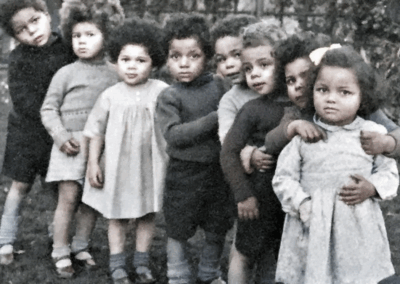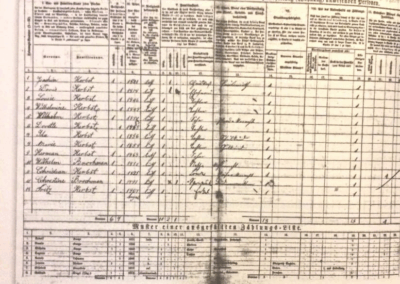The following blog post is part of a series highlighting key aspects of the work of DNA Doe Project’s investigative genetic genealogists showcased in the documentary Naming the Dead, available on NatGeoTV, Hulu, and Disney+.
Grief is most often associated with finality—the death of a loved one, the end of a relationship, or the loss of something once certain. And because we are all likely to experience grief many times throughout our lives, there are countless resources available to help us navigate those emotionally challenging situations. But families of missing persons experience a lesser-known but deeply painful form of loss known as ambiguous grief.
What Is Ambiguous Grief?
Ambiguous grief, a term coined by family therapist and researcher Dr. Pauline Boss, refers to a type of mourning that occurs when there is a lack of closure. This could be the result of a partner abandoning their family without explanation. It could happen with forced separations, like when refugees are separated from loved ones. It may be felt when someone in a family is deployed with the military and their whereabouts are unknown for long periods of time. The key difference between grief and ambiguous grief is the element of the unknown – the persistent thought that you have no idea what has happened or what the future holds.
Ambiguous Grief for a Missing Person
When someone disappears, their family is left in a state of emotional limbo. Without definitive answers, loved ones are forced to carry two opposing truths: hope that the person is alive and safe, and fear that they may never return. This mental tug-of-war can be emotionally exhausting and deeply isolating.
Some of the specific challenges families face include:
- Lack of Closure – Without confirmation of life or death, families may feel trapped in an endless loop of searching and waiting.
- Social Disenfranchisement – Because society often doesn’t recognize ambiguous grief in the same way as conventional loss, families may receive less emotional support or even be told to “move on” or encouraged not to worry because they don’t know anything for certain.
- Complicated Decision-Making – Decisions like cleaning out a seemingly abandoned apartment or having someone declared deceased can be legally tricky, as well as mentally, emotionally, and physically exhausting.
- Ongoing Trauma – Every new lead, sighting, or update can reopen wounds and reset the grieving process, creating a cycle of hope and despair.
Why It Matters
Ambiguous grief can take a profound toll on mental health, leading to anxiety, depression, chronic stress, and even post-traumatic symptoms in individuals, all while putting a tremendous strain on families. Because this type of grief doesn’t follow the typical stages or timelines of mourning, it requires a different kind of support and acknowledgment. For many people, simply realizing that these strange feelings they’re having has a name – ambiguous grief – is an important first step.
Finding Support
Recognizing ambiguous grief as valid helps affected families feel seen, heard, and supported. Mental health professionals, support networks, and even the broader public can make a meaningful difference simply by understanding that ambiguous loss is real—and that those who live with it carry a unique and lasting pain.
There are organizations, counselors, and support groups specifically trained to address ambiguous grief. Seeking out these resources can help families begin to build coping strategies, even if answers never come. While closure may not be possible, connection and understanding are—and they can make a significant difference in the journey toward healing.
For more information about how you can help the DNA Doe Project, please click here.





